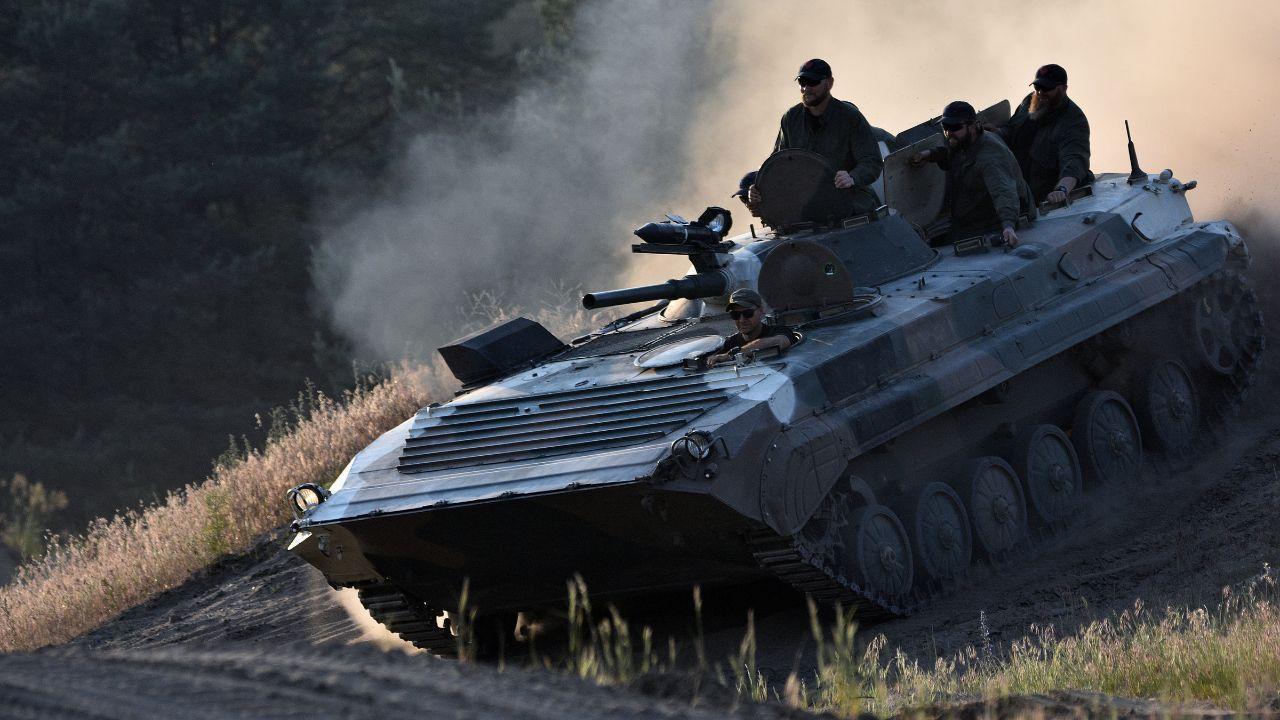
Post by: Vansh Kumar
Throughout history, wars have been significant forces in shaping the world as we know it today. These conflicts have led to the rise and fall of empires, the shifting of political power, the development of technology, and changes in the social fabric of nations. Understanding the impact of these wars helps us comprehend how the modern world evolved. In this article, we’ll explore 12 important wars in history that changed the world and examine their lasting effects on global history.
The Trojan War, often regarded as a mythic event, is believed to have taken place in the 12th century BC. Whether real or not, this war, immortalized by Homer’s, has had an undeniable impact on Western literature and thought. The war’s tales of love, betrayal, and strategy have shaped the way we perceive the interplay of gods, humans, and fate in conflict. While it may not have influenced modern geopolitics directly, it helped to establish the archetypes of heroism, conflict, and tragedy that have persisted in cultures worldwide.
The Punic Wars (264-146 BC) were a series of three wars fought between Rome and Carthage. These wars were some of the largest conflicts of the ancient world and played a pivotal role in establishing Rome’s dominance over the Mediterranean. The Second Punic War, in particular, with the famous Carthaginian general Hannibal, changed the trajectory of Roman military tactics and political ambitions. The eventual Roman victory resulted in Carthage’s destruction, marking Rome’s rise to supreme power in the region and setting the stage for the Roman Empire’s dominance.
Spanning from 1337 to 1453, the Hundred Years' War was a series of conflicts between England and France. This war is credited with shaping the modern concept of nation-states. The battle for control over French territories and the English throne eventually led to the decline of feudalism and the rise of more centralized forms of government. It also marked a turning point in military tactics and the role of the common soldier, making way for the use of longbowmen, cannons, and other advanced warfare strategies.
The American Revolution (1775-1783) was one of the most significant conflicts in history, as it marked the birth of the United States of America. The colonies’ fight for independence from Britain had profound effects not just on America, but also on the entire world. It inspired other independence movements, shifted the balance of colonial power, and laid the groundwork for the rise of democracy and republicanism. The principles that emerged from this war—liberty, equality, and the right to self-determination—continue to resonate globally.
From 1803 to 1815, the Napoleonic Wars reshaped the political landscape of Europe. Led by Napoleon Bonaparte, France sought to dominate the continent, leading to a series of conflicts with various coalitions of European nations. Napoleon’s defeat at the Battle of Waterloo in 1815 brought an end to his ambitions and marked the beginning of a new era of European diplomacy. The Congress of Vienna, which followed, redrew Europe’s borders, establishing a new balance of power that would dominate for decades. The wars also spread revolutionary ideas of liberty, equality, and nationalism across Europe.
The American Civil War (1861-1865) was one of the bloodiest conflicts in U.S. history, fought between the North (Union) and the South (Confederacy) over issues such as slavery and states' rights. This war led to the abolition of slavery and the preservation of the Union. It had lasting effects on the political, social, and economic landscape of the United States, particularly in the South, which faced significant devastation. The Civil War also highlighted the complex relationship between federal power and state sovereignty, a tension that continues to shape American politics today.
World War I (1914-1918) is often referred to as "The Great War" due to its massive scale and the profound changes it brought about. The war involved many of the world's great powers and set the stage for significant geopolitical shifts. The Treaty of Versailles, which ended the war, led to the collapse of empires like the Austro-Hungarian and Ottoman Empires, while creating new nation-states. It also sowed the seeds for World War II by creating conditions of political and economic instability in Europe, including the rise of fascism and nationalism.
World War II (1939-1945) remains the deadliest and most widespread conflict in history, involving most of the world’s nations. The war led to the downfall of Nazi Germany, Fascist Italy, and Imperial Japan, and set the stage for the emergence of the U.S. and Soviet Union as superpowers. The war also saw the creation of the United Nations, aimed at preventing future global conflicts. The horrific consequences of the war, including the Holocaust and the atomic bombings of Hiroshima and Nagasaki, left an indelible mark on the world, shaping international politics, human rights, and military strategy.
The Korean War (1950-1953) was a key event in the Cold War, fought between North Korea (with Chinese and Soviet support) and South Korea (backed by the United Nations, primarily the United States). While the war ended in a stalemate, it solidified the division of Korea into two separate states and heightened tensions between the Communist and Western blocs. The Korean War also played a significant role in shaping U.S. foreign policy and military strategy in the Cold War, leading to a series of proxy wars throughout the latter half of the 20th century.
The Vietnam War (1955-1975) was another pivotal conflict during the Cold War, fought between communist North Vietnam (supported by the Soviet Union and China) and non-communist South Vietnam (backed by the U.S. and its allies). The war ended with the fall of Saigon and the unification of Vietnam under communist rule. The Vietnam War had profound implications on U.S. foreign policy, public opinion, and military strategy. It also marked a significant moment in the global struggle between communism and democracy, leading to a reassessment of U.S. involvement in foreign conflicts.
The Gulf War (1990-1991) was a response to Iraq’s invasion of Kuwait. Led by a U.S.-led coalition, the war was a landmark in the use of advanced military technology, such as precision-guided munitions and stealth bombers. The conflict led to the swift defeat of Iraqi forces and brought significant political changes to the Middle East. It also marked the beginning of a new era in warfare, with global media coverage and real-time broadcasting revolutionizing the way wars were perceived by the public.
The War on Terror, initiated after the September 11, 2001, attacks, has been one of the most significant and ongoing conflicts in recent history. It includes the wars in Afghanistan and Iraq, as well as various counterterrorism efforts around the world. This conflict has reshaped global politics, security strategies, and international relations, particularly between the West and the Middle East. The War on Terror has also sparked debates about the balance between security and civil liberties, making it a defining issue of the early 21st century.
Summary: This article explores 12 important wars in history that changed the world, highlighting their profound effects on global politics, social structures, and international relations. From the ancient Trojan War to the modern War on Terror, each conflict reshaped the course of history in unique ways. Key wars, such as the Punic Wars, the American Revolution, and both World Wars, significantly influenced the rise and fall of empires, the formation of new nations, and the evolution of military tactics. By examining these transformative conflicts, readers gain insights into how these historical events continue to impact the world today.
Disclaimer: The views and analysis presented in this article reflect historical interpretations and are for informational purposes only. DXB News Network does not endorse any particular viewpoint, and readers are encouraged to seek further resources for a comprehensive understanding of the wars discussed. The historical facts provided in this article are subject to interpretation and may vary based on different sources and perspectives.
#trending #latest #WarsShapingPolitics #GlobalPolitics #HistoricalWars #ImpactOfWars #PoliticalBoundaries #MilitaryHistory #WorldPolitics #PoliticalChanges #GeopoliticalShifts #WarAndPolitics #breakingnews #worldnews #headlines #topstories #globalUpdate #dxbnewsnetwork #dxbnews #dxbdnn #dxbnewsnetworkdnn #bestnewschanneldubai #bestnewschannelUAE #bestnewschannelabudhabi #bestnewschannelajman #bestnewschannelofdubai #popularnewschanneldubai

Emirates College for Advanced Education held reading sessions to strengthen family bonds, promote learning, and celebrate UAE’s Year of the Community....Read More.

Silver faces volatility near $33 as traders watch for U.S. tariff news. A breakout above $35 could spark a strong rally in the market...Read More.














Safeer Mall in Sharjah Closes After Decades as a Beloved Shopping Spot
Iconic Safeer Mall in Sharjah shuts down after nearly two decades, leaving residents nostalgic for i

Barcelona Beat Atletico to Set Up Copa Final vs Real Madrid
Barcelona edged Atletico 1-0 to reach the Copa del Rey final, where they’ll face rivals Real Madrid

UAE Wins 16 Medals at Special Olympics World Winter Games 2025
UAE athletes shine at Special Olympics Winter Games 2025, winning 16 medals. A proud moment for incl

Meta’s AI Research Head Joelle Pineau to Step Down in May
Joelle Pineau, Meta’s VP for AI research, will step down in May after 8 years. She led Meta’s open-s

Real Madrid Edge Real Sociedad in 4-4 Thriller to Reach Final
Real Madrid fought back from 4-2 down to draw 4-4 with Real Sociedad sealing a 5-4 aggregate win. Ru